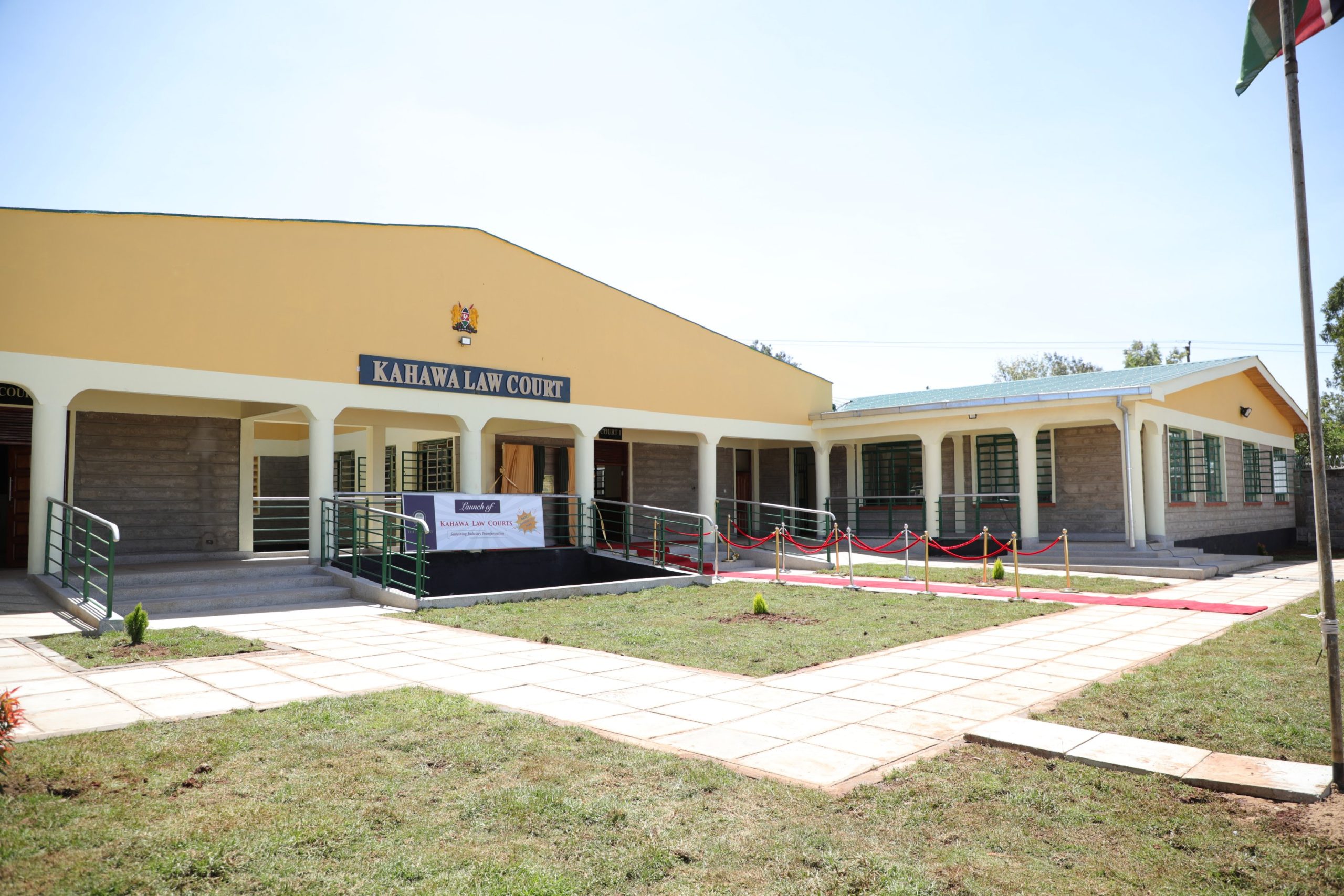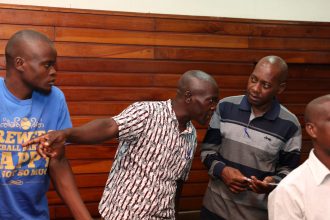In a significant ruling underscoring Kenya’s hardline stance on terrorism, the Kahawa Law Courts denied bond to three individuals accused of terror-related activities in Mandera, a volatile region near the Somalia border.
Principal Magistrate Gideon Kiage, siding with the prosecution led by Duncan Ondimu, OGW, emphasized the gravity of the charges, which include conspiring to commit a terrorist act and membership in the outlawed Al-Shabaab militant group.
The decision reflects the judiciary’s cautious approach to balancing individual rights with national security amid an uptick in Al-Shabaab activity in Kenya’s northeast.
The suspects—Isaq Cabdi Xasan, a Somali national also known as Issack Mohammed, and Kenyan nationals Noor Yakub Ali and Yusuf Maalim—were charged with plotting a terrorist act in Mandera town on or before February 18, 2025.
The court heard that the trio was linked to a violent attack on Kenyan security officers following Xasan’s arrest, an incident that resulted in the death of one police officer, serious injury to another, and the theft of two firearms.
Additionally, Noor and Yusuf face charges of facilitating Xasan’s fraudulent application for a Kenyan identity card, a detail that points to broader concerns about the infiltration of terrorist networks within Kenyan borders.
Magistrate Kiage, in his ruling, highlighted the severity of the case as a compelling reason to restrict the accused’s rights.
“This is a serious matter which the defence does not deny. Given the nature of the attack and the gravity of the charges, the court finds the prosecution’s concerns valid and grounded in precedent related to this case,” he stated.
To allow the prosecution time to finalize disclosures and secure evidence, Kiage deferred the bail and bond decision for 30 days, a procedural step taken after the suspects’ plea hearing two weeks prior.
Mandera, located in Kenya’s northeast near the Somalia border, has long been a hotspot for Al-Shabaab activity. The region’s proximity to Somalia’s Gedo region, particularly the Ceel Waak district, has made it a frequent target for cross-border attacks.
According to a November 2024 report by the Armed Conflict Location & Event Data Project (ACLED), Mandera recorded 10 political violence events between October and mid-November 2024, primarily involving armed clashes between Al-Shabaab and Kenyan security forces.
These incidents resulted in 14 reported fatalities, underscoring the persistent threat posed by the militant group.
The attack linked to the suspects is part of a broader pattern of violence in Mandera.
On October 6, 2024, Al-Shabaab militants targeted a Kenyan security forces convoy near Damasa on the Somalia border, a strike that mirrors the aggression seen in the case at hand.
Historical incidents, such as the 2016 Al-Shabaab attack in Mandera that killed 12 people, further illustrate the region’s vulnerability.
The Countering Violent Extremism (CVE) Research Hub, which monitors terror-related activities in Kenya, has noted an increase in such attacks since 2017, highlighting the need for robust security and judicial measures.
Judicial Precedent and the Bail Dilemma
The Kahawa court’s decision aligns with prior judicial rulings on terror-related cases, where the balance between constitutional rights and public safety has often tilted toward the latter.
In a 2023 case at the same court, terror suspects were denied bail due to concerns over flight risk and the potential threat to national security. The lack of clear legislative guidelines on bail for terror suspects has been a point of contention in Kenya’s legal system.
In the current case, the prosecution’s argument centered on the severity of the charges and the potential risk posed by the suspects if released.
The involvement of Al-Shabaab, a group responsible for numerous attacks in Kenya, including the 2013 Westgate Mall siege and the 2019 DusitD2 attack in Nairobi, likely influenced the court’s decision.
The stolen firearms from the Mandera attack further raise concerns about the suspects’ capacity to orchestrate further violence if granted bond.
The ruling comes at a time when Kenya is grappling with multifaceted security challenges.
Beyond the Al-Shabaab threat, communal militias in the north and east have contributed to sporadic violence, with 21 reported fatalities in Tana River county in October 2024 alone, according to ACLED.
The northeast, particularly Mandera, remains a focal point for counterterrorism efforts, with security forces frequently targeted in border areas like Lafey sub-county. The systematic targeting of military installations by Al-Shabaab underscores the group’s enduring presence and the challenges facing Kenyan authorities.
As the case progresses, the 30-day deferment on the bail decision provides the prosecution with a window to strengthen its evidence. For the residents of Mandera, however, the ruling offers little immediate relief from the specter of violence that continues to haunt the region.
With Al-Shabaab’s influence showing no signs of waning, Kenya’s judiciary, security forces, and policymakers face the daunting task of addressing both the symptoms and root causes of terrorism in the country’s northeast.












